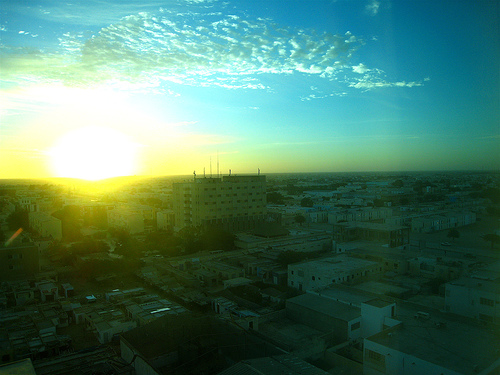Mauritania’s outlook no longer on hold
Just a few years ago, Mauritania appeared to be on a trajectory for certain ICT success. For one, neighboring North African nations were relatively advance in terms of ICT adoption and could serve as a model for African success. An ICT policy was established in 1999-2000. In 2004, the government trained 40,000 employees on computer use. In 2005, a presentation, Les Perspectives de Développement du Réseau de Recherche et d`Education en Mauritanie told a fairly promising story of:
- Connections with France, Morocco, Germany, and soon SAT3 through Senegal
- Mauritel working to reduce rates
- University of Nouakchott as a bastion of connectivity
- Inefficiencies outlined in order to promote progress
Additionally, statistics associated with the ITU Telecom Conference in 2004 grouped Mauritania with the rest of North Africa saying, “The five Maghreb countries – Algeria, Tunisia, Morocco, Mauritania and Libya – have more telephone infrastructure than all the 46 countries in Africa south of the Sahara excluding South Africa.”
A more accurate statement in mid-2010, would be that Mauritania hardly contributes to the overall infrastructure of the Maghreb countries and has a way to go before it can boast connectivity rates of Tunisia, for example. A major reason for the pause in ICT development could be the military coups of 2005 and 2008 which have caused major discontinuities in governance. Still, the outlook is positive, and political stability is surely contributing to an optimistic climate of change.
Just last week, Libya announced plans to invest in Mauritania’s telecommunications industry (most notably mobile and fixed telephony). Mauritania, with a coastal location and capital is a prime match for an undersea fiber optic cable. Approximately 2% of the country’s 3 million inhabitants is connected to the Internet in some form, and a mere two-tenths of a percent has broadband access. The good news is that Nouakchott is linked to the ACE and GLO-1 submarine cables which should become active in the coming months. Furthermore, 3G service has existed since 2007, and even three years ago there were three mobile operators in the country (Mauritel, Mattel, and Chinguitel) yielding a penetration rate of 36%. Additionally, Mauritania has signed on to a program with both the Maghreb nations and a handful of European nations to promote digital education in universities. Very promising, indeed.













 Twitter
Twitter Facebook
Facebook Pinterest
Pinterest